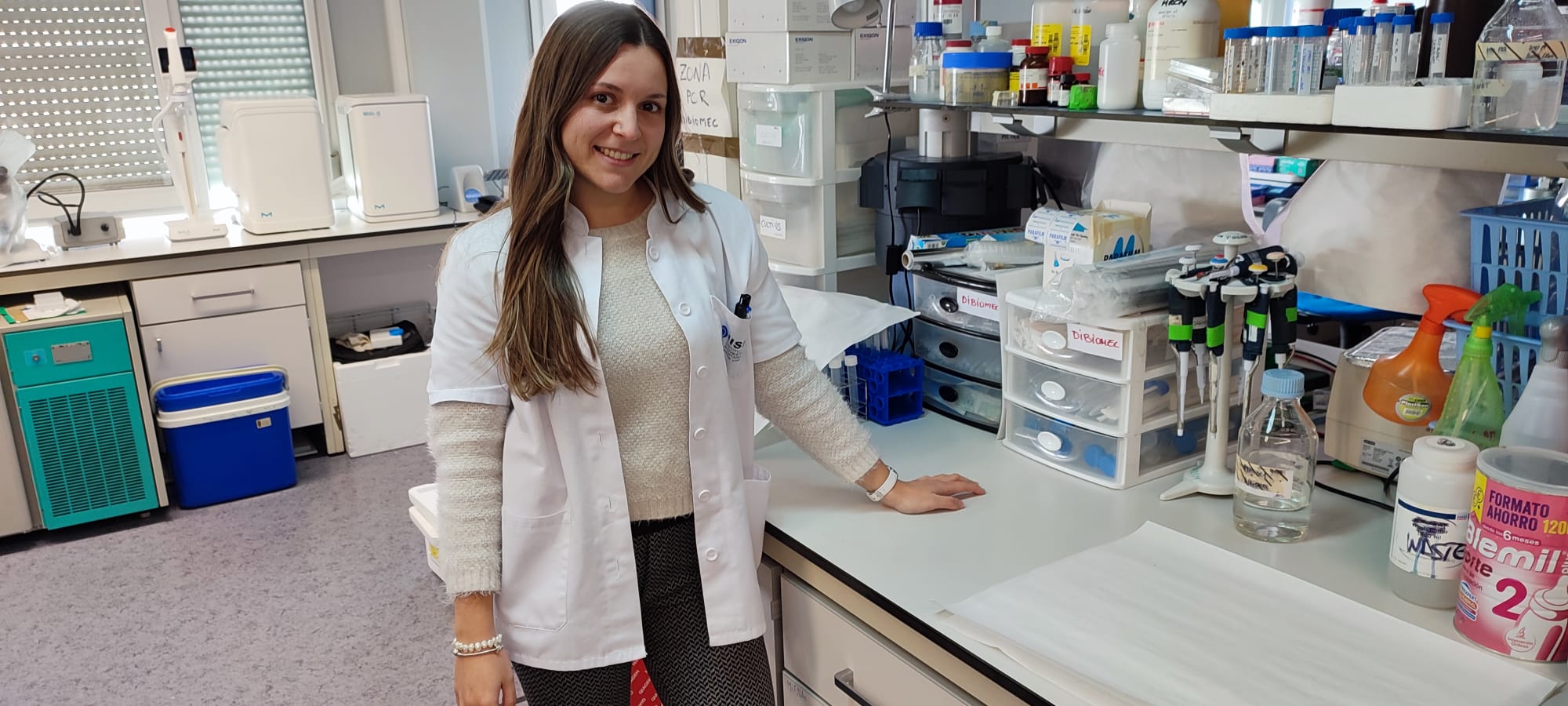Silvia Sánchez Martín
@iispv.cat
PhD student at Disease Biomarkers and Molecular Mechanisms Group (DIBIOMEC)
Institut d'Investigació Sanitària Pere Virgili (IISPV)
EDUCATION
I specialized in the Health Mention in the fourth year during the Biology Degree. I did an internship in the animal reproduction department of the National Institute for Agricultural and Food Research and Technology (INIA).
I expanded my knowledge in Master's in Health Analysis. I did an internship at the University Hospital 12 de Octubre.
I am currently doing a Biomedicine PhD in the context of prostate cancer at the Institut d'Investigació Sanitària Pere Virgili (IISPV) in DIBIOMEC group (Disease Biomarkers and Molecular Mechanisms), Hospital Joan XXIII.
RESEARCH INTERESTS
Clinical medicine and epidemiology; biomedicine; molecular mechanism of disease; tissue culture; molecular, cellular and genetic biology; cell biology and molecular biology
Scopus Publications
Scopus Publications
Antonio Altuna-Coy, Xavier Ruiz-Plazas, Silvia Sánchez-Martin, Helena Ascaso-Til, Manuel Prados-Saavedra, Marta Alves-Santiago, Xana Bernal-Escoté, José Segarra-Tomás, and Matilde R. Chacón
Springer Science and Business Media LLC
Abstract Background Periprostatic adipose tissue (PPAT) plays a role in prostate cancer (PCa) progression. PPAT lipidomic composition study may allow us to understand the tumor metabolic microenvironment and provide new stratification factors. Methods We used ultra-high-performance liquid chromatography-mass spectrometry-based non-targeted lipidomics to profile lipids in the PPAT of 40 patients with PCa (n = 20 with low-risk and n = 20 high-risk). Partial least squares-discriminant analysis (PLS-DA) and variable importance in projection (VIP) analysis were used to identify the most relevant features of PPAT between low- and high-risk PCa, and metabolite set enrichment analysis was used to detect disrupted metabolic pathways. Metabolic crosstalk between PPAT and PCa cell lines (PC-3 and LNCaP) was studied using ex vivo experiments. Lipid uptake and lipid accumulation were measured. Lipid metabolic-related genes (SREBP1, FASN, ACACA, LIPE, PPARG, CD36, PNPLA2, FABP4, CPT1A, FATP5, ADIPOQ), inflammatory markers (IL-6, IL-1B, TNFα), and tumor-related markers (ESRRA, MMP-9, TWIST1) were measured by RT-qPCR. Results Significant differences in the content of 67 lipid species were identified in PPAT samples between high- and low-risk PCa. PLS-DA and VIP analyses revealed a discriminating lipidomic panel between low- and high-risk PCa, suggesting the occurrence of disordered lipid metabolism in patients related to PCa aggressiveness. Functional analysis revealed that alterations in fatty acid biosynthesis, linoleic acid metabolism, and β-oxidation of very long-chain fatty acids had the greatest impact in the PPAT lipidome. Gene analyses of PPAT samples demonstrated that the expression of genes associated with de novo fatty acid synthesis such as FASN and ACACA were significantly lower in PPAT from high-risk PCa than in low-risk counterparts. This was accompanied by the overexpression of inflammatory markers (IL-6, IL-1B, and TNFα). Co-culture of PPAT explants with PCa cell lines revealed a reduced gene expression of lipid metabolic-related genes (CD36, FASN, PPARG, and CPT1A), contrary to that observed in co-cultured PCa cell lines. This was followed by an increase in lipid uptake and lipid accumulation in PCa cells. Tumor-related genes were increased in co-cultured PCa cell lines. Conclusions Disturbances in PPAT lipid metabolism of patients with high-risk PCa are associated with tumor cell metabolic changes.
Publications
The lipidomic profile of the tumoral periprostatic adipose tissue reveals alterations in tumor cell's metabolic crosstalk.
doi: 10.1186/s12916-022-02457-3.
GRANT DETAILS
- Search for serum diagnostic biomarkers to patients with early rheumatoid arthritis usign a combined multi-omic approach. Societat Catalana de Reumatologia. 6000,00 €
- Identification of exo-oncomiRNAs regulated by the inflammatory cytokine TWEAK in the cross-talk between periprostatic adipose tissue and prostate cancer cell. Utility as biomarkers for diagnosis and prognosis. Instituto de Salud Carlos III. 135520,00 €
RESEARCH OUTPUTS (PATENTS, SOFTWARE, PUBLICATIONS, PRODUCTS)
- Validation of the biomarker panel composed by sTWEAK, exomiR-221-3p and exomiR-222-3p in semen liquid biopsy for prostate cancer prognosis and, assessment its usefulness in prostate cancer diagnosis and active surveillance. 11th CERCA-GINJOL. 10000,00 €
SOCIAL, ECONOMIC, or ACADEMIC BENEFITS
PIF-Salut PERIS for PhD research 91035,00 €

